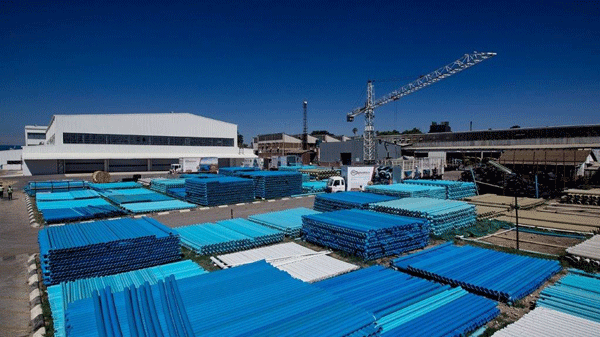IMTT among inflation drivers — CZI
Zimbabwe’s biggest industrial lobby group, the Confederation of Zimbabwe Industries (CZI), has cited the extension of intermediated money transfer tax (IMTT) to foreign currency transactions as one of the major drivers of recent surges in (prices) inflation.
The month-on-month inflation rate surged by 4,22 percent in December last year and skipped 5,43 percent only last month, according to figures from the Zimbabwe National Statistics Agency (Zimstat).
That monetary authorities are chasing a target of a monthly inflation rate below 1 percent for this year and an annualised figure of less than 10 percent by year end, raised the spectre of a sustained inflation run.
Prices of goods and services in Zimbabwe have increased by an average of 362,63 percent in 12 months period spanning January 2020 and January this year, according to the latest figures from Zimstat.
Annual inflation reached a post dollarisation high of 837 percent last year, before trending down to current levels, owing to a coterie of far-reaching policy interventions implemented by the Government.
The then galloping briefly rekindled memories of a wild inflation run similar to the grotesque events that unfolded over the decade to 2008, when annual inflation rate hit 500 billion percent, according to International Monetary Fund (IMF).
A representative body for retailers told this publication that major prices increases have been registered in the prices of basic commodities that include cooking oil, rice, soap, maize meal, salt and bread.
The Confederation of Zimbabwe Retailers president Denford Mutashu, attributed prices increases for basics to limited competition during the national lockdown, diminished supplies and arbitrages and opportunism among the businesses allowed to open during the lockdown period.
Ruzvidzo slams IMTT on forex transactions
CZI president Henry Ruzvidzo, said in an interview that many number things that happened over the past two months, among them the extension of the IMTT to nostro transactions, were partly to blame for inflationary pressures noted in December last year and January this year.
“A number of decisions that have been taken in the past few months have an impact on the general pricing of goods in the economy,” Ruzvidzo said, citing IMTT among factors responsible for pushing up inflation. The IMTT is a statutory 2 percent tax charged on specific ranges of intermidiated money transfers, initially levied on local currency transactions only, but which has since been extended to forex transfers made by banks and other operators.
Ruzvidzo pointed out the upward adjustment of the foreign currency surrender threshold across all sectors, the 20 percent surrender on nostro transfers and the general upward hike of statutory payments, which had lagged behind exchange rate movements, adjustment of electricity tarrifs, council rates and toll gate fees adjustments as other factors.
“In addition, international supplies have increased in price due to the Covid 19 supply chain disruptions and the recent fuel increase is attributed to international price movements (contributed to inflation surge).
“The currency reform process has not tamed the disparity in rates which has persisted and has recently widened. Stability of prices is important for growth of businesses a return to instability is highly undesirable,” the CZI president noted.
Zimstat says producer price inflation increased by just over 4 percent in December 2020, as manufacturers moved to cover rising costs, which may have triggered the general increase in prices.
Economist, Eddie Cross, who is a member of the Reserve Bank of Zimbabwe (RBZ) monetary policy committee, said bullish trends on the stock market in January suggested growth in money supply. He said money supply expanded by about 117 percent on annualised basis to December 2920, with the biggest surge witnessed in the last quarter of the year.
But Cross said he was non the wiser when it comes to what had led to the sudden increase in money supply, which he said monetary authorities needed to clarify.
But the Government thinks otherwise
Speaking to our sister paper The Sunday Mail Business last Friday, the Government insisted prices of most basic commodities largely remained stable during the past two months except for maize-meal and cooking whose significant increases were due to high import costs of raw materials.
The Ministry of Industry and Commerce monitors price and availability of basic commodities, which include cooking oil, bread, maize roller meal, salt, flour, sugar, beef (economy), chicken, eggs, milk, rice, bath soap, laundry soap and washing powder.
Surveys on prices and availability of these products are done on a weekly basis at major retail outlets in urban areas. On a quarterly basis, the ministry undertakes survey in all retail outlets at major business centres and growth points in the rural areas.
“Generally, the prices of the basic commodities have remained stable save for cooking oil and maize roller meal,” Industry and Commerce Minister Dr Sekai Nzenza said. “The price increases in the majority of the monitored products have been very insignificant.”
Dr Nzenza said cooking oil producers were largely relying on imported crude oil as the country’s production of soyabean, the major source of raw material locally, is inadequate.
Zimbabwe imports the bulk of crude oil from Argentina. Other costs of inputs such as caustic soda, hexane and packaging have also gone up, thus affecting the cost of production.-Chronicle.co.zw










